What Makes a Good Podcast in 2026?
A good podcast in 2026 comes down to three things: a clear promise for a specific audience, a format you can repeat, and audio that’s easy to listen to.
A good podcast in 2026 comes down to three things: a clear promise for a specific audience, a format you can repeat, and audio that’s easy to listen to.
A lot of podcasts don’t fail because the host isn’t talented. They fail because the show doesn’t have a clear promise, the production process isn’t consistent, and the listener can’t tell why they should come back.
At TYX Podcasting Studios in London, we work with top industry names along with new podcasters, enabling them to achieve consistent results. In this guide, we’ll break down what consistently makes podcasts work: a clear target audience, a reliable release schedule, and production that’s easy to listen to, easy to follow, and easy to share.
Start with a promise your right audience cares about
Most people don’t try a new podcast because the host is “good”. They try it because the show makes a clear promise in one line and it feels like it was made for them.
That promise is the difference between “interesting, maybe” and “I’m listening to this on my commute”. It tells a new listener what they’ll get, how it’ll help, and why it’s worth their time.
Broad shows often struggle here. When you aim at everyone, the hook gets vague, the titles get bland, and the show becomes harder to choose. Niche doesn’t mean small. It means specific enough that the value is obvious.
Define your target audience in one sentence
Your target audience isn’t a demographic; it’s a person with a situation, a problem, and a reason to listen today. Your podcasting goals matter here too, because the right audience depends on whether you’re building authority, community, lead flow, or a show people binge
Use this simple test before you create anything:
- Who is this for, specifically?
- What are they trying to solve, avoid, or understand right now?
- What will they be able to do after listening?
- What would make them come back next week?
A successful podcast requires clarity here. When your content strategy starts with the right audience, everything else gets easier: episode titles, the production process, guest choices, and audience growth.
Choose an original idea, not an empty niche
Original doesn’t mean inventing a brand new topic. It means giving people a clear reason to choose your show over the ten others sitting next to it in Spotify or YouTube.
The easiest way to find that reason is to stop thinking in categories and start thinking in outcomes. What do you help the listener do, understand, or decide that they’re not getting elsewhere? That’s your angle.
If you want a practical check, scan the top shows in your space and look for patterns:
- What do they keep skipping or glossing over?
- What are people frustrated by in reviews and comments?
- Where do hosts waffle, overcomplicate, or never get to the point?
- What could you explain, prove, or simplify in a way that’s actually usable?
That’s where strong episodes come from, and where engaging podcast content is easiest to make. You’re not chasing a niche for its own sake. You’re building the show around a real gap your audience already feels.
Build structure that makes every episode easy to follow
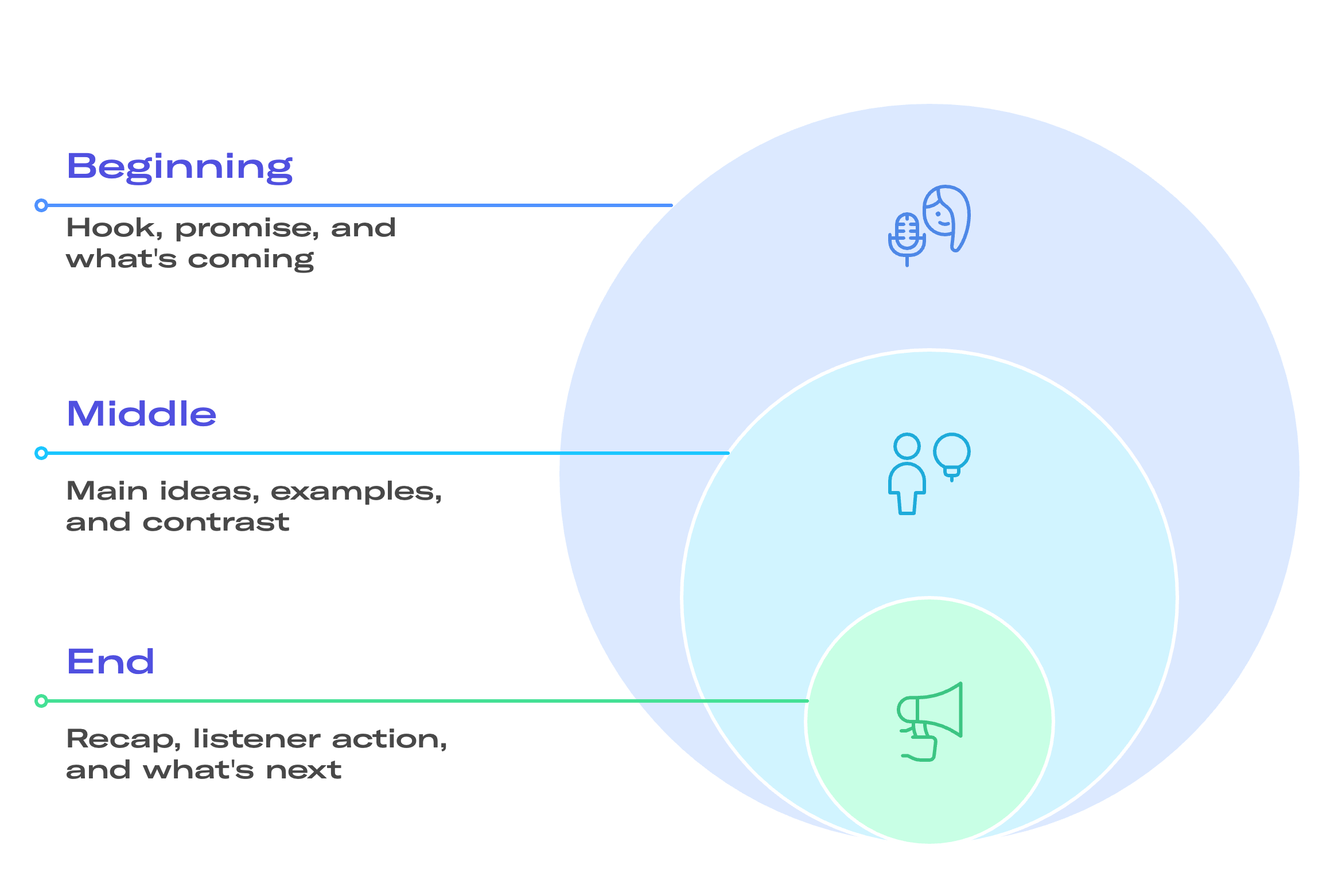
A clear podcast structure includes a defined beginning, middle, and end, making the content focused and easy to follow. This is a key factor in whether listeners stay through the entire episode.
Planning is important for structuring a podcast to ensure it is organised and coherent. Having a plan for your podcast is essential to avoid awkward pauses and mistakes during recording, which also makes post-production faster.
Use a simple beginning, middle, end framework
A reliable structure can be simple, as long as it’s consistent:
- Beginning: hook, promise, and what’s coming
- Middle: the main ideas, examples, and contrast
- End: recap, listener action, and what’s next
Maintaining a solid, consistent structure throughout episodes is key to keeping audiences engaged. When structure repeats, your audience knows they’re in good hands.
Write talking points, not a script
Most listeners can hear when you’re reading. In spoken word formats, a good host sounds natural and present, not perfect.
Use talking points to stay focused:
- 5 to 8 bullets for the main segment
- 2 examples you can explain clearly
- 1 question that invites audience participation
You’ll still talk freely, but you won’t drift. It also keeps recording fun (which podcasting should be, after all), and listeners can hear it. That balance is part of what makes a good podcast feel effortless.
Match structure to your format
A successful podcast requires the structure to fit the format, not the other way around. If you force a complex structure into the wrong format, production becomes more labour-intensive, and podcasts fail more often.
Here’s a simple way to match format to reality:
Solo episodes
Solo can be the fastest route to a good podcast because scheduling is easy. It’s also where preparation matters most, because silence feels louder when it’s just you.
Keep solo structure tight:
- Short hook
- Clear promise
- Three points
- Recap and next step
Interview podcasts

Interview podcasts can grow quickly, but only if the host protects the listener experience. Podcast guests should add value, not derail the episode.
For interview guests, lock these basics:
- A promise for the episode
- Three talking points you must cover
- A clear beginning, middle, and end
Narrative and documentary
Narrative shows live or die on good storytelling and the edit. When they land, they feel premium and people binge them. The trade-off is time. These formats take longer to write, record, fact-check, cut, and mix, so a weekly schedule is hard to hold unless your workflow is built for it.
If you’re going narrative, plan for it upfront. Build a buffer, batch what you can, and treat production like a pipeline, not a last-minute scramble.
Make storytelling do the heavy lifting
Story is what keeps people listening. Even in a business podcast, the moments that stick are the human ones: a decision, a mistake, a surprise result, a lesson learned the hard way.
You don’t need cinematic editing. You need momentum. Give the listener a reason to stay with you from minute to minute, and use sound and structure to support the point, not distract from it.
Use compelling storytelling without overproducing
Compelling storytelling usually follows a simple arc:
- Setup: what’s happening and why it matters?
- Tension: what’s uncertain, hard, or misunderstood?
- Resolution: what changed, what worked, what didn’t?
- Lesson: what the listener should do next?
Good podcasts thrive off good stories that are genuinely interesting to listen to. Great stories connect people and make information more accessible.
Make engaging content feel worth the time
Offer value to your podcast listeners, whether through education, entertainment, or inspiration. High-quality shows create actionable value by offering useful content, emotional resonance, or clear calls to action.
A fast self-check after you record:
- Did we teach something usable?
- Did we make the listener feel something?
- Did we give them a next step?
If you can’t answer yes, the episode may be entertaining, but it won’t consistently engage.
Become a good podcast host people trust
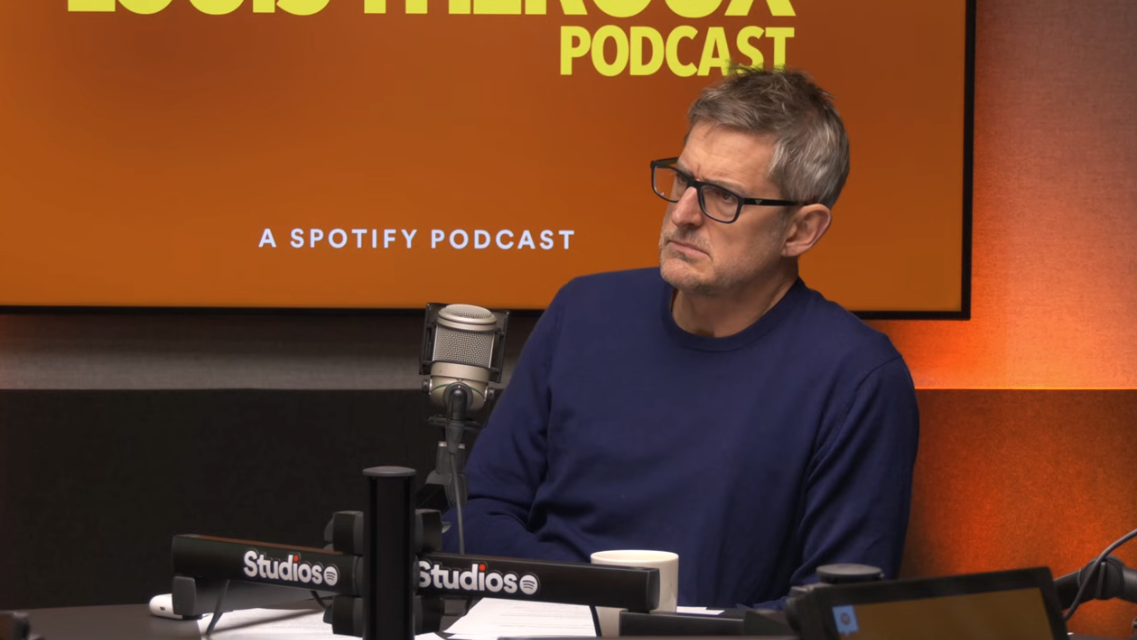
A strong topic helps, but over time, most listeners stay because they trust the host. It feels like someone who understands their world, speaks plainly, and respects their time.
That matters as much as gear. Your job as host is to guide the episode, keep it human, and protect the promise you made at the start. Trust is built in small moments: how you frame a question, when you cut the waffle, how you handle a guest, and whether you show up consistently.
Speak directly and keep it human
The fastest way to lose listeners is to talk like you’re presenting to a room. Speak directly and it becomes personal.
Try this:
- Use “you” when you describe the problem
- Use “we” when you describe shared reality
- Use “I” when you own your point of view
This is how you keep listeners coming back without forcing a personality.
Use guests with intention
Feature appropriate and relevant guests who add value to the podcast content. If you host guests, give them a short brief, keep the talking points clear, and protect the structure.
Using remote recording software is necessary for conducting interviews with guests who are not physically present. But the real key is consistency: record in a repeatable setup so every episode sounds like the same show.
Protect audio quality so it’s easy to listen
Good sound quality is a non-negotiable aspect of successful podcasting. A good podcast can survive imperfect lighting, but it rarely survives harsh audio or distracting background noise.
Audio quality is defined by investing in good microphones and optimising recording environments. Professional audio must avoid muffled voices or background noise to keep the audience engaged.
Get high-quality audio with fundamentals first
High-quality audio comes from control, not luck:
- Record in a quiet room with sound-absorbing materials
- Keep mic distance consistent
- Remove background noise at the source
Recording in a quiet room with sound-absorbing materials can improve audio quality. This matters more than most upgrades to recording equipment.
Choose microphones that fit real rooms
Using a capable microphone and good mic technique is essential for studio-quality results. Investing in the right equipment can significantly enhance the sound quality of a podcast, but only if the room is handled first.
In untreated rooms, a dynamic mic is often the more forgiving choice because you can work closer to the mic and improve the voice-to-room ratio. That’s why they’re often a safer choice when your recording space isn’t treated.
Keep your audio format and files organised
A simple audio format workflow prevents mistakes:
- Record clean audio
- Export one master audio file
- Export a compressed version for publishing
- Name files consistently for post-production
When the podcast sounds consistent, listeners relax. When it doesn’t, they leave.
When a professional studio makes sense
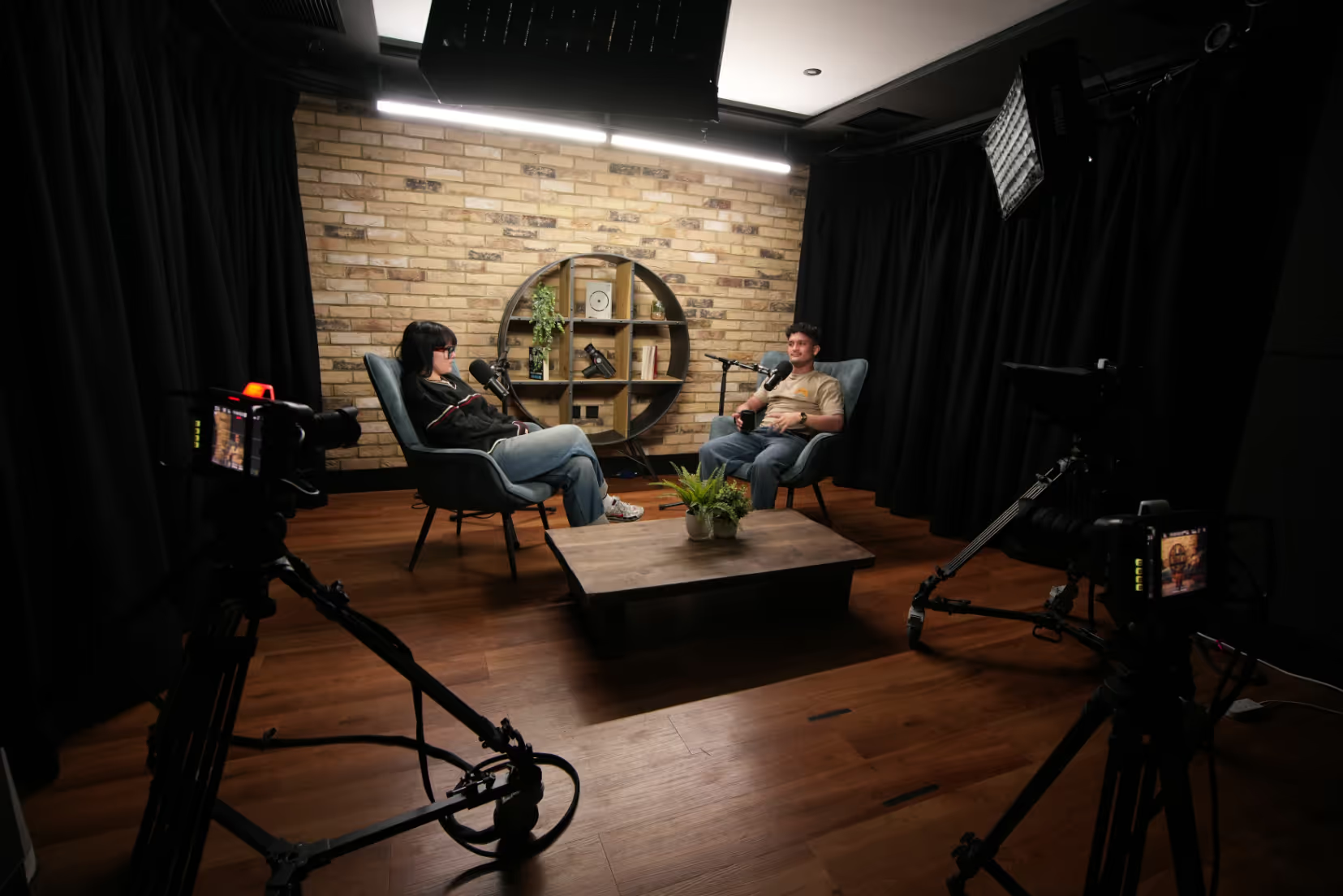
A professional studio is worth it when you need reliability. You get a controlled room, consistent mic placement, and a technical setup that removes the usual home-recording problems. That means cleaner audio, smoother sessions with guests, and fewer fixes in the edit, especially if you’re filming as well.
TYX Podcasting Studios offers purpose-built podcast spaces designed for high-quality audio and video. The studios are set up for 4K video with professional lighting, and you can have a dedicated technician supporting the session so you can focus on the conversation rather than the kit.
Use post-production to polish, not to rescue
Post-production is essential for enhancing audio quality and ensuring a professional sound. It’s also where creators lose time if they try to fix problems that should’ve been solved before recording.
Editing software is crucial for cleaning up audio and structuring podcast episodes effectively. GarageBand and Audacity are popular free editing software options for podcasters, and they’re a strong starting point.
What to do in post-production every time
Keep your post-production routine repeatable:
- Remove dead air and obvious mistakes
- Level voices so listening feels effortless
- Reduce distracting background noise, not all natural room tone
- Tighten the first minute so listener engagement stays high
- Add intro and outro only if they help the promise
This keeps production quality high without turning every episode into a long rescue job.
Protect momentum with a “good enough” rule
Editing can make an episode sharper, but it can also become the thing that stops you publishing. If you keep chasing perfect, the release date slips, momentum drops, and listeners forget to check in.
Aim for a standard you can hit every time. Clean audio, tight structure, a strong first minute. Then ship it.
Publish on a schedule people can rely on
Consistency is how a podcast turns into a habit. When listeners know when you’re out, they’re more likely to come back without thinking about it.
Pick a rhythm you can sustain, then protect it. Weekly and fortnightly both work. What matters is that you show up when you said you would. Build a content strategy you can sustain
A content strategy should protect your schedule, not sabotage it.
A realistic rhythm for most podcasts:
- Batch record when you can
- Keep a small buffer of new episodes
- Publish weekly or fortnightly
This stabilises your production process and makes it easier to create without burnout.
Learn from previous episodes
Good podcasts grow with their audience by surveying and analysing qualitative feedback. Combine that with performance signals, and you’ll generate new ideas that fit your audience.
Review previous episodes and ask:
- Where did listeners drop off?
- What did people quote or share?
- What questions appeared in the comments?
Then create new episodes from those signals.
Make the show easy to find in podcast directories and search engines
Good podcasts optimise their episodes for SEO to improve discoverability. The goal isn’t tricks. It’s clarity.
Submit everywhere that matters
Podcast directories still matter because they make shows searchable and easy to recommend. A strong baseline is:
- Apple Podcasts
- Spotify
- YouTube and YouTube Music
Google Podcasts was discontinued in 2024 as Google shifted podcast listening to YouTube Music. If your show still references Google Podcasts in older content, update it to avoid confusing a new audience.
In the UK, Spotify and YouTube are major podcast destinations, with BBC Sounds also significant. Apple Podcasts remains an important directory (especially for iOS listeners and distribution metadata), but it’s not the only (or always the primary) discovery path.
Most platforms let you claim and manage your listing with a free account, so it’s worth doing early.
Use episode titles that earn the click
Episode titles are part of what makes a podcast discoverable. They’re the promise, in a single line.
Good episode titles:
- Name the topic in plain language
- Promise a takeaway
- Match the relevant terms your target audience would type
Clear titles help attract new listeners without changing your content.
Add a podcast website if you want search visibility
A podcast website gives you a stable home for episodes, links, and updates. It can support search engines and make sharing easier.
Keep it simple:
- A homepage that states the promise
- A page for each episode
- Links to Apple Podcasts and other platforms
Build marketing into the production process
Weave your marketing efforts into the production process. If you treat marketing as an extra task, it won’t happen, and audience growth slows.
Invite audience participation on purpose
Podcasts that engage with their audience and invite them into the conversation tend to be more successful. Encourage listener interaction through questions and feedback to build community.
Simple routines work:
- Ask one specific question per episode
- Respond to comments when you can
- highlight listener stories in new episodes
This keeps listeners engaged and keeps them coming back.
Use social media channels without burning out
Engaging with listeners through social media helps build a sense of community around the podcast. Pick two social media channels you can maintain and keep the posts repeatable:
- One clip or quote
- One lesson
- One behind-the-scenes post
That consistency helps new listeners trust the show.
Cross-promote to reach a new audience
Today, achieving podcast success is difficult without cross-promotion. It remains one of the most effective ways to reach new audiences, and works best when audiences overlap, and the recommendation feels natural.
A simple version:
- Swap a short mention in an episode
- Share each other’s posts on launch week
- Do one interview with aligned creators
It’s a high-leverage way to engage a new audience.
Keep the show modern with a multi-platform presence
In 2026, most podcasts grow because they travel well. People discover shows in different places, sample them in short bursts, and only then commit to a full episode. That’s why multi-platform thinking matters, and why video often pulls more weight in discovery than it used to.
You don’t need a massive studio setup to play this game. You need a repeatable system that makes the show easy to publish and easy to sample:
- A strong first minute
- Clear visuals if you film
- A simple plan for clips that earn the click and lead back to the full episode
And if you stay audio-first, that’s fine. You can still build a great show by being consistent, staying clear on the promise, and giving listeners a reason to come back.
Why podcasts fail and how to prevent it
Podcasts fail for repeatable reasons, and most fail in predictable patterns. The good news is you can prevent nearly all of them by tightening the production process.
The most common causes:
- The promise is vague, so the right audience doesn’t stick
- The structure drifts, so the episode feels long
- Audio is tiring because of background noise
- Publishing is inconsistent, so a loyal following never forms
- Marketing isn’t built into the production process, so new listeners don’t arrive
Not all good podcasts need to be huge to be successful. But every successful podcast requires clarity, consistency, and a repeatable system.
Final checklist
TYX Studios: everything you need to create a great podcast

If you’re looking for professional support to elevate your podcasting game, TYX London Studios offers top-notch facilities and expertise to help you produce high-quality content that attracts and retains listeners.
Our podcast recording studios provide everything you need to create a good podcast that will grow and engage your audience.
Frequently Asked Questions
A clear promise for a specific target audience, delivered on a schedule you can actually keep. Great production helps, but if the positioning is vague or the publishing is inconsistent, it’s hard to build a loyal following.
Usually it’s the same few reasons: the show is too broad, the structure drifts, the audio is hard to listen to because of noise or echo, and publishing becomes irregular. When the process isn’t repeatable, momentum fades and people stop checking in.
No. Guests can add energy, expertise, and variety, but plenty of successful shows are solo. If you do use guests, brief them, keep the talking points clear, and protect the listener experience.
Start by building a habit. Publish consistently, make each episode easy to choose, and ask for one specific action at the end. Then keep promotion simple across a couple of social media channels with repeatable formats like short clips, one takeaway, and a quote people can share.
Treat it as your “why this show exists” episode. Say who it’s for, what it helps with, what people can expect each week, and what to do next. Keep it tight and easy to follow, because it sets expectations for every new listener.
You don’t need one to start, but it helps with search engines, sharing, and long-term discoverability. Even a simple setup with one page per episode and clear links out to platforms is enough.
You’ll record in our purpose-built podcast studios set up for professional audio and 4K video, with a dedicated technician on hand so the session runs smoothly.
Yes. We can handle the full production workflow, from recording through editing and post-production, and we can also create social clips to support distribution and discovery.
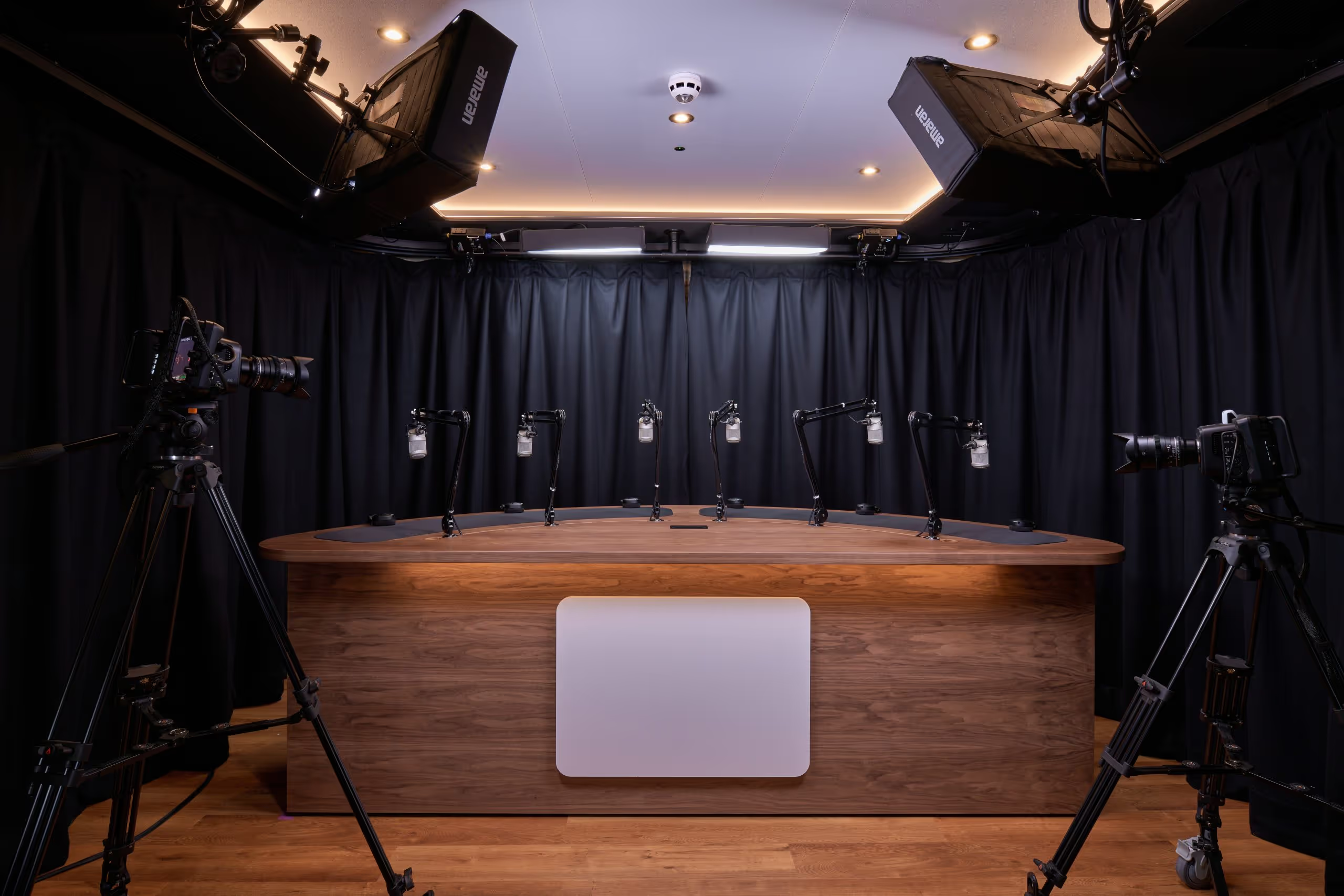
How to Start a Podcast in 2026: Full Step-by-Step Guide
Learn how to create a podcast in 2026 with a practical, step-by-step system for planning, recording, hosting, editing, and launching across audio and video.
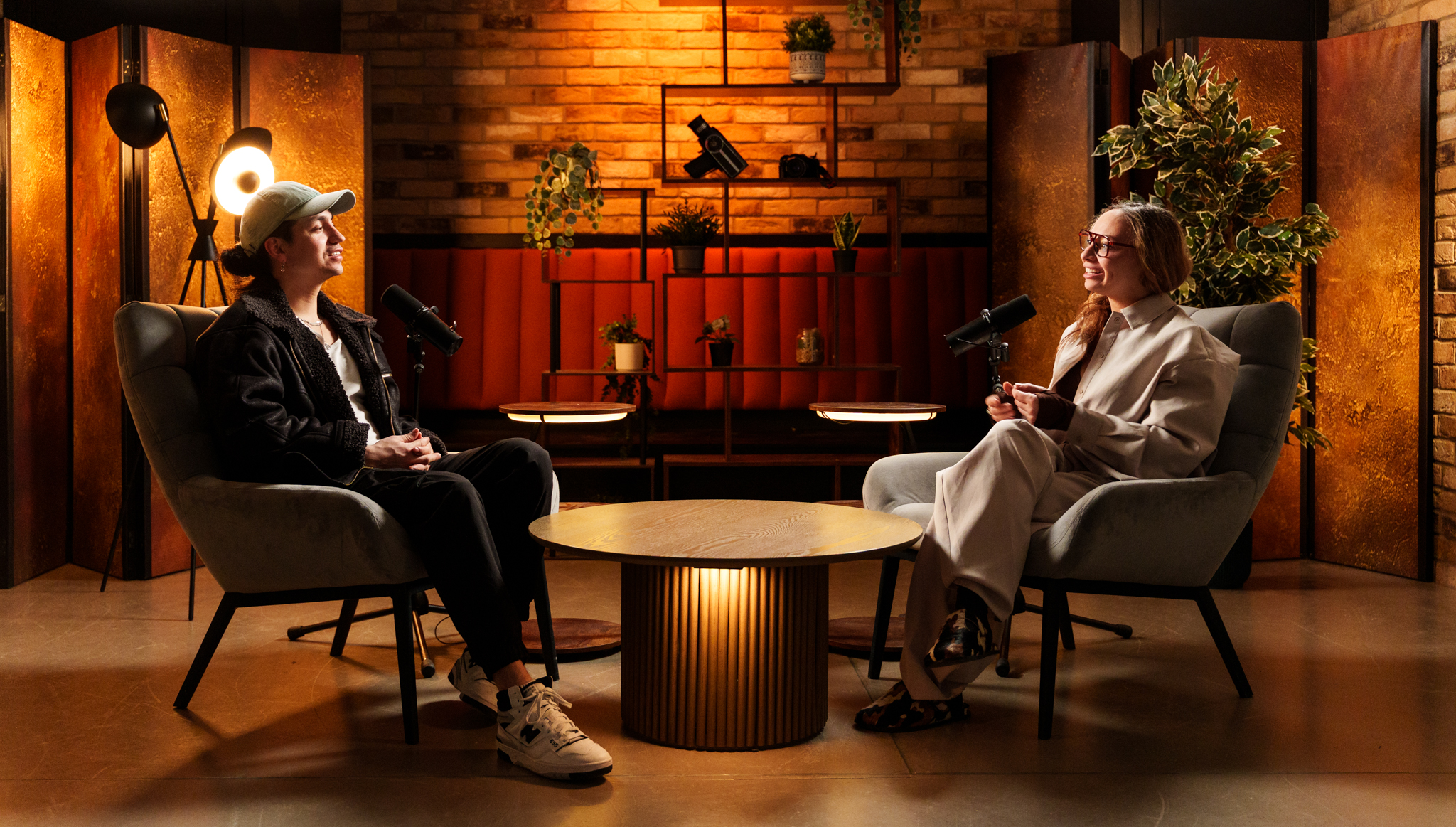
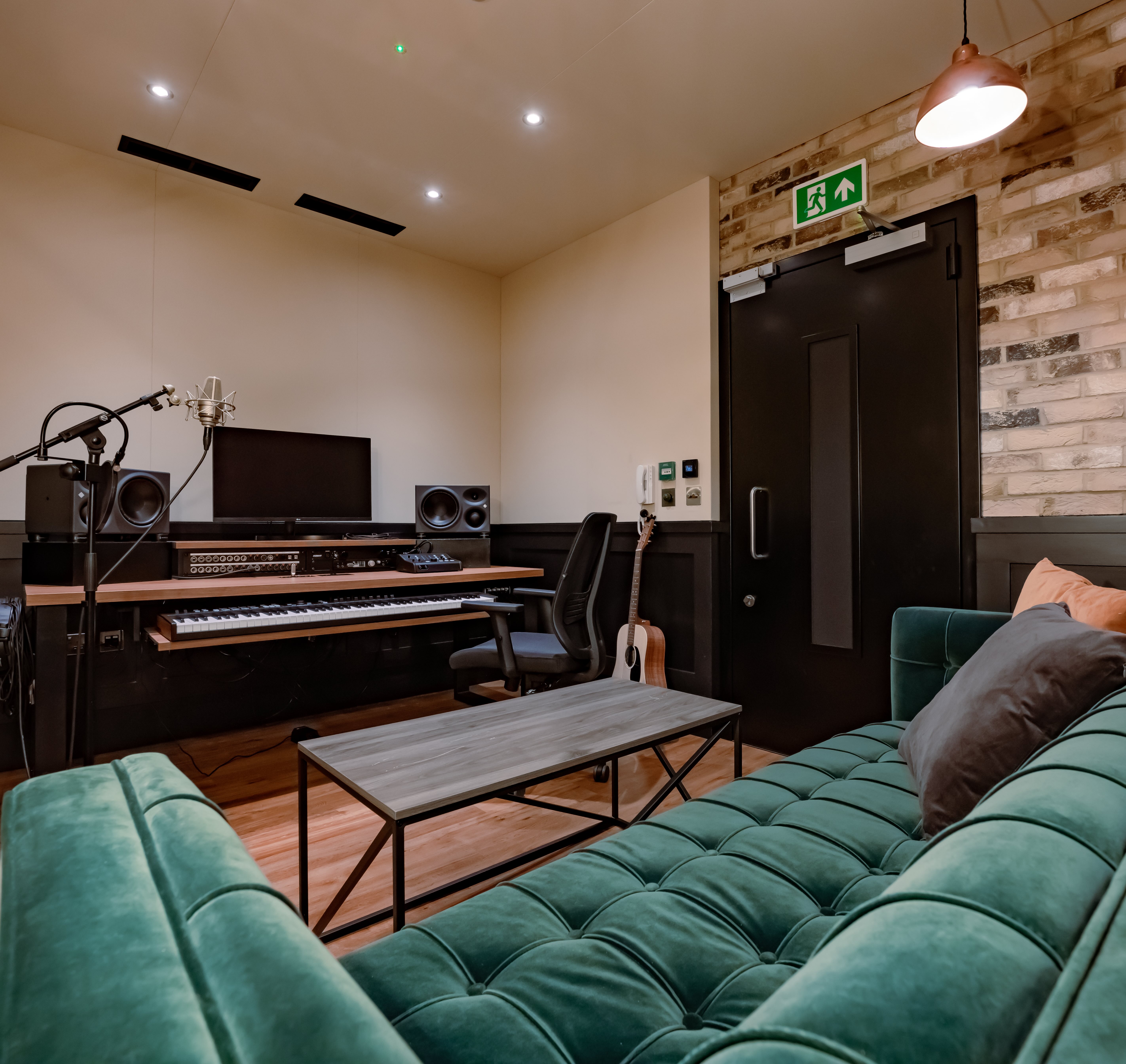














.png)

.avif)